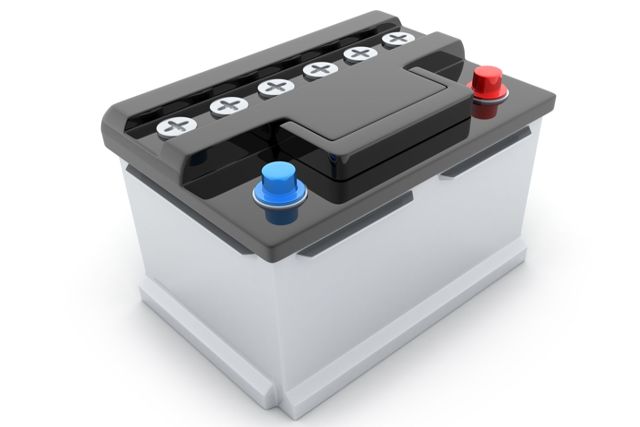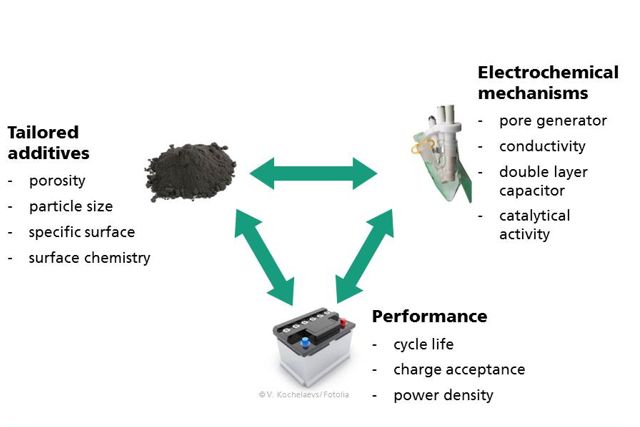AddESun – A New Generation of Lead-Acid Batteries


The turnaround in German energy policy is posing new demands on electrochemical energy storage systems. Electric vehicles and stationary storage units for photovoltaic systems, for instance, look for long service lives and high power densities.
The collaborative project “AddESun” aiming to safeguard the future of lead-acid batteries was launched in September 2017. The list of project goals includes a more sustainable production, improved charging behavior, longer service life and higher power density. The key task of researching new additives and their effect on battery properties was assigned to the Fraunhofer ISC. Electrochemical investigations and model-supported analyses will help gain a better understanding of the correlation between the chemical and physical structure of the additives and what effect they have on a battery‘s mechanical stability, conductivity and on the porosity of the active mass.
Testing will take place on a test cell developed by the Fraunhofer researchers and ideally representing the lead-acid system. The test cell was designed to enable the transfer of standardized tests to lab scale almost without any artefacts to close the gap between research and application.
The information will be used to synthesize new or to optimize old materials. The systematic approach is intended to improve service life and augment energy density by up to 30 percent. A battery demonstrator with an energy capacity of 30 kWh – equal to a 200 km range for an electric vehicle – will serve to evaluate and verify the findings. Project results will allow immediate implementation in existing plants to strengthen German players in the international arena and help them secure a sustainable market position.
Project funding
The “AddESun” project is with a 60 percent funding from by the German Federal Ministry of Education and Research. The overall project volume is 3.41 million euros for a term of three years.
Project partners
- EXIDE Technologies Operations GmbH & Co. KG | Büdingen (coordinator)
- Evonik Resource Efficiency GmbH | Hanau
- PENOX GmbH | Ohrdruf
- SGL Carbon GmbH | Meitingen
- Institut für Stromrichtertechnik und Elektrische Antriebe ISEA at RWTH | Aachen